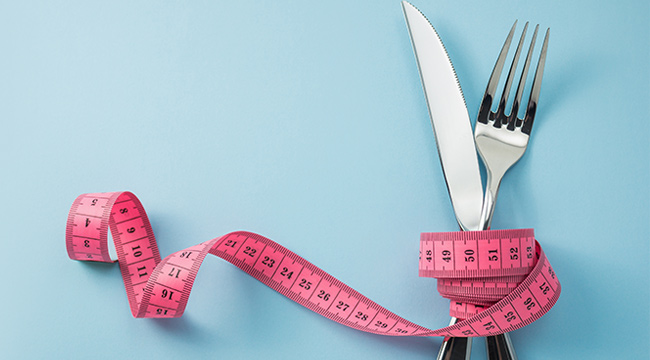
Every January, millions of people commit to making a fresh start with regards to physical health. It’s a noble goal, and one anyone can reach, but it often means walking into the maw of an industry worth billions, and potentially hitting a fad more interested in slimming your wallet than your waist. So how do you spot a diet fad?
First, look at the structure of any diet — what you’ll be doing day to day. Any diet engineered to help you lose weight is generally built to instill a set of basic habits. If a diet promotes an unsustainable habit, like eating nothing but one food or a strictly limited set of foods, or requires you to basically eat the brand’s processed food from now until the end of time, it’s not going to work in the long term.
Changing your habits is the only way to really lose weight and keep it off. Those habits are: Eat fewer calories than you burn; eat low calorie, high-nutrient foods like vegetables and lean proteins; and follow a basic exercise program (not just for weight loss, but to promote optimal body functioning!). Do those things and, barring metabolic issues or other concerns, you’ll likely lose weight.
That said, what the books, the apps, or the meetings offer is motivation, guidance, and accountability. It’s a lot easier to stay on track for changing any habit if you’ve got some sort of structure. Different people need different types of structure, which is why there are so many diets out there. Some thrive with everything planned down to the last detail, others like more flexibility. Maybe you need to have friends over three times a week for kale salads. Pick the structure that appeals to you, and make sure it holds you accountable in some way.
Scientifically, if we’re accountable to a friend, we’re more likely to stick with it.
Your friends and family will have plenty of opinions about the best diets, but do some Googling and see if the claims hold up on a scientific level. While what we know about diet is constantly changing, one thing that hasn’t changed is how science works. At root, science is all about getting some test subjects together, having them try something while a control group commits to not trying it, and measuring what happens. So, if a diet is claiming it’s “scientifically proven,” find those studies and put them to the scientific smell test. If they don’t hold up, or you can’t find any studies, then there’s likely nothing there.
Don’t just take Google’s word for it, though. Before you go on any diet, go see your doctor. One of the biggest problems people have is they don’t listen to their doctors — so book a checkup, tell your doctor about your concerns (don’t be afraid! They’ve heard it all), and ask what makes sense for you, medically. When the answers come back, make a point of listening! It’s your doctor’s job to tell you what you don’t want to hear, and, sorry, the Chipotle diet is not a long-term weight loss solution. If you think you have some sort of allergy or problem, ask for a test and confirm it. Letting nebulous undiagnosed medical problems set your diet is a good way to get an actual medical problem on your chart.
Finally, remember the skeptic’s mantra: Extraordinary claims require extraordinary evidence. By now, we all know the idea that any diet will help us drop a hundred pounds, gain rippling muscles, and suddenly straighten our teeth is a crock, so the diet industry has moved on to other claims that sound more credible but are equally specious. If a diet insists you have a disease your doctor didn’t notice, that you’ve been eating the “wrong” way, that some corporation is secretly killing you, or is putting forth some other claim that’s attention-getting or exploiting a fear or anxiety, that’s your cue to demand proof.
Losing and maintaining a healthy weight is a lifelong goal and often a challenge. Finding the right way to do it is a lot easier once you know what pitfalls to look out for.






